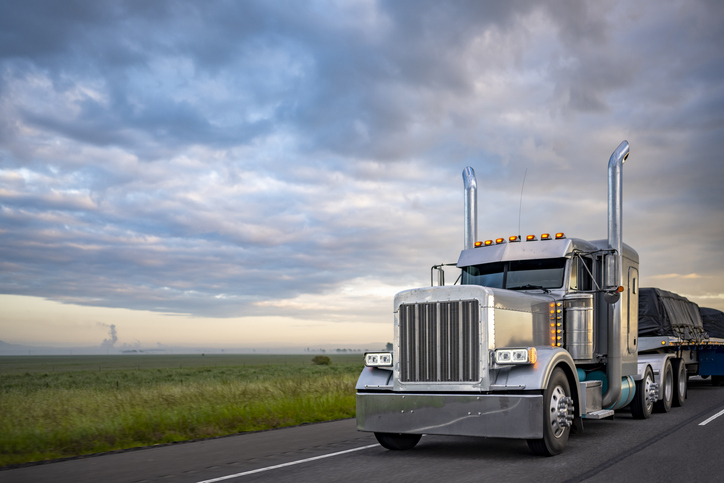
Electrifying the Freight Industry: The Rise of Electric Big Rigs and Their Impact on Transportation
Neri Diaz and his company, Harbor Pride Logistics, encountered a significant setback with their transition to electric vehicles when all 14 of their newly acquired electric trucks were recalled by the manufacturer, Nikola, with promises of a return in the upcoming year. This issue comes at a critical time as California prepares to enforce new regulations banning the addition of diesel trucks to the fleets operating in and out of the state’s ports, a rule that is pending approval from the U.S. Environmental Protection Agency.
California, known for its progressive environmental policies, views the shift from diesel to electric trucks as a key strategy in reducing carbon emissions and improving air quality, especially around its ports. The ports of Los Angeles and Long Beach, among the busiest in the nation, see about 30,000 trucks registered, and transitioning these to electric could significantly cut emissions. Currently, only 180 electric trucks are registered at the Port of Los Angeles, which is less than 1% of the total, highlighting the nascent stage of this transition.
To facilitate this shift, California has allocated substantial financial incentives, offering grants up to $288,000 per vehicle. Large companies like Maersk have already transitioned to electric fleets, benefiting from such incentives and having the capital to install necessary charging infrastructure. However, smaller trucking companies, which make up about 70% of port traffic, face greater challenges due to the high costs of electric trucks and charging stations, coupled with limited access to charging infrastructure.
The state’s ambitious plans have met resistance, exemplified by a lawsuit from the California Trucking Association which argues that the regulations overreach and threaten the stability of the national goods movement industry. Concerns also extend to the logistical and financial burdens placed on smaller operators, as emphasized by Matt Schrap of the Harbor Trucking Association, who noted the reluctance of landlords to install charging stations due to the high costs and potential disruptions.
Despite these challenges, some industry leaders remain optimistic. Companies like Forum Mobility are stepping in to build public truck charging stations and lease electric trucks, aiming to address the needs of smaller fleets. Southern California Edison is also involved, focusing on building out the truck-charging infrastructure and streamlining regulatory processes to better support the transition.
Neri Diaz notes the economic benefits of electric trucks, which cost about 40% less to charge than their diesel counterparts, although the upfront costs remain higher. The recall of his Nikola trucks has been mitigated somewhat by the manufacturer covering loan payments during the interim, reflecting ongoing support as the industry works towards resolving these early setbacks.
Overall, California’s move to electrify port trucking is part of a broader effort to decarbonize the transportation sector by 2035, setting a precedent that other states are watching closely. The success of this initiative depends on the collaboration among truck manufacturers, energy providers, state agencies, and the trucking industry to overcome financial, logistical, and technological barriers.
Electric trucks have several features that could potentially make them safer than diesel trucks, though the overall safety of these vehicles also depends on factors like design, maintenance, and the driver’s experience. Overall, while electric trucks offer several safety benefits, continuous advancements in technology, regulatory oversight, and real-world testing are crucial to fully understand and mitigate any new risks they might introduce.
Riverside truck accident attorneys, or any attorney specializing in truck accidents, plays a crucial role in adapting to the changes brought by the introduction of electric trucks into the commercial fleet. Here’s how such attorneys might adjust and contribute:
1. Understanding New Technologies: Attorneys will need to familiarize themselves with the technology underlying electric trucks, including how they operate, their safety features, and potential failure points. This knowledge is vital for effectively representing clients in cases where vehicle technology could be a factor in accidents.
2. Legal Expertise on Emerging Regulations: As electric trucks become more common, new regulations and laws will likely govern their use, maintenance, and safety standards. Truck accident attorneys will need to stay informed about these developments to provide accurate advice and robust representation.
3. Liability and Insurance Issues: With new technology comes new challenges in determining liability, especially if a truck’s electronic systems or software fail. Attorneys will need to navigate the complexities of insurance policies that cover electric trucks, which might have different terms due to the high cost of the vehicles and their repairs, particularly battery systems.
4. Accident Reconstruction Expertise: Understanding the physics of how electric trucks react in crashes, considering their additional weight and different braking systems, is crucial. Attorneys may work more frequently with experts in accident reconstruction who specialize in electric vehicles to build accurate and effective cases.
5. Advocating for Fair Compensation: Given the high costs associated with repairing or replacing damaged electric trucks, attorneys will play a key role in ensuring that compensation covers the actual costs faced by owners and operators, including potential business losses during longer repair times due to parts availability.
6. Environmental Claims: In cases where the benefits of electric trucks are a factor, such as reduced emissions contributing to better community health, attorneys might also bring up these points in cases that involve broader environmental impact considerations.
7. Training and Seminars: Proactive attorneys might also provide training or seminars for trucking companies transitioning to electric fleets, advising them on best practices for safety, compliance, and minimizing liability.
8. Handling Specific Electric Vehicle Issues: Issues like battery fires, electric system malfunctions, or software glitches in autonomous driving features could be new areas of focus. Attorneys will need to develop strategies to address these specific concerns in litigation and settlement negotiations.
By adapting to these aspects, truck accident attorneys can better serve their clients, ensuring they are prepared to handle cases that involve the latest in vehicle technology while continuing to provide expert legal services.


